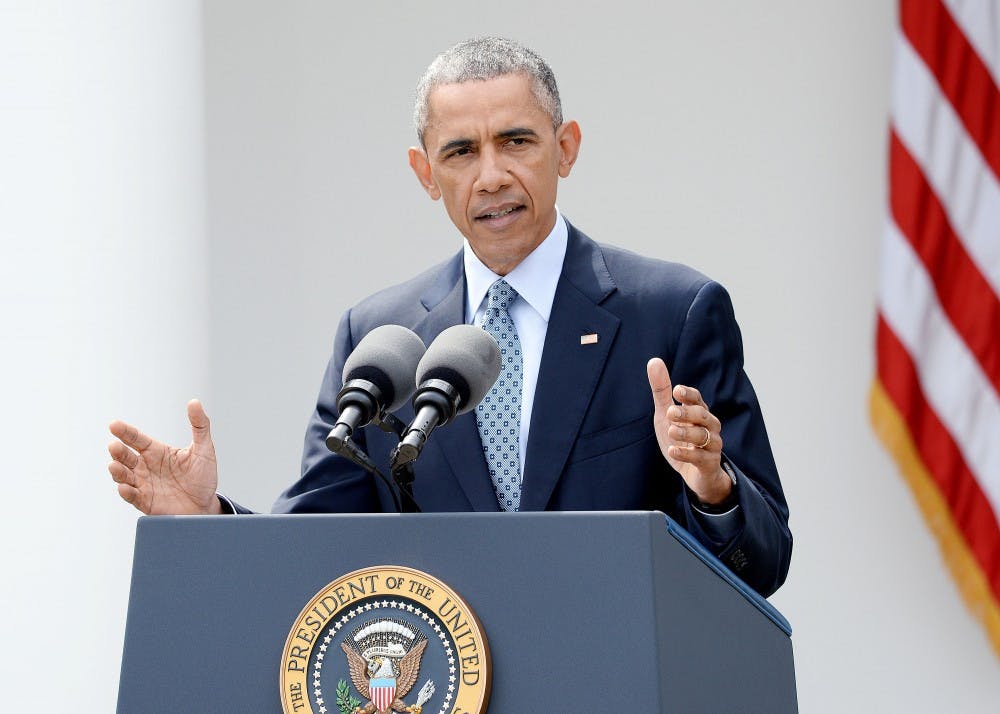ISIS is being pushed back, demoralized and pummeled into a painstakingly slow submission, placed in a stranglehold and forced into a few key areas of Iraq and Syria. As Doug Ollivant, a senior National Security fellow at the New America Foundation, said, “The Islamic State in Iraq and the Levant — known by most people in the Middle East as Daesh — will lose its battle to hold territory in Iraq.”
Through a systematic air campaign on the part of the U.S. and a coalition of other countries, as well as ground offenses by Kurdish, Iraqi, and Shiite militia forces, ISIS is on the defensive. Now, this combined offensive has pushed ISIS all the way back to the center of the city of Tikrit.
However, just as the offensive is starting to succeed against ISIS, there are signs that the powers fighting this horrible, atrocity-committing terrorist organization are not as united in purpose as they should be in facing this menacing threat. Besides the already frosty relationship between the U.S. and Iran, some of the Iranian-backed Shiite militias recently decided to pull back from the Tikrit offensive because of the involvement of the U.S. through airstrikes.
This has caused a slow-down in the offensive as the Shiite militias waver and the Iraqis contemplate the significance of the fight it will take to re-possess the entirety of Tikrit, and also because they have realized that the Shiite militias have been doing the majority of the fighting.
But this isn't the worst of the problems that the U.S. is facing — or I should say that President Obama is facing. That’s because not only is the Tikrit offensive not going as swimmingly as it could be, but it is also technically illegal according to President Obama’s legal reasoning.
According to President Obama, he is authorized to launch offensives against ISIS is based on the Authorization for the Use of Military Force written by Congress back in 2001 to respond to the terror attacks of Sept. 11. It stipulates that “the President is authorized to use all necessary and appropriate force against those nations, organizations, or persons that he determines planned, authorized, committed, or aided the terrorist attacks that occurred on Sept. 11, 2001, or harbored such organizations or persons, in order to prevent any future acts of international terrorism against the United States by such nations, organizations or persons.”
Yet ISIS, even though it is an offshoot of al-Qaida in Iraq — which is different but a part of the group that planned and committed the terrorist attacks on 9/11) — is not affiliated with al-Qaida, and indeed is an active rival to that organization. Therefore it doesn't fall under the purview of the second clause of the AUMF. Even if it were affiliated with Al-Qaeda, most of the members of ISIS either weren’t alive or were teenagers when 9/11 happened, and therefore don’t fall under the first clause of the AUMF. To spell it out, the AUMF doesn't apply to ISIS.
But the President can claim legal sanction for his actions all the way up to the recent airstrikes in Tikrit. Constitutionally, under Article II, Section 3, the President “shall take Care that the Laws be faithfully executed....” The President is also famously empowered as “Commander in Chief of the Army and Navy of the United States,” under Article II, Section 2. The President has done this in relation to protecting the lives of American personnel and those of the Yazidis, who were under threat of genocide because of the actions of ISIS. Therefore the President was legally correct in defending them as per his constitutionally-sanctioned authority and the UN’s Responsibility to Protect, which the President is bound to uphold as a member of the international community and as the leader of a Security Council nation.
But the President has moved outside of his purview on this latest offensive in Tikrit, where there are no American personnel to protect and no evident prospect of genocide, and no real evident prospect of terrorism against the U.S. by those members of ISIS in Tikrit. However, in the interests of ensuring American strategic interests and making sure that Iran doesn't become the sole winner in this conflict (having done most of the fighting through its Shiite militias), it might be justified for the president to break the law, since Congress simply isn't doing anything.
Reach the columnist at jbrunne2@asu.edu or follow @JARBrunner4 on Twitter.
Editor’s note: The opinions presented in this column are the author’s and do not imply any endorsement from The State Press or its editors.
Want to join the conversation? Send an email to opiniondesk.statepress@gmail.com. Keep letters under 300 words and be sure to include your university affiliation. Anonymity will not be granted.
Like The State Press on Facebook and follow @statepress on Twitter.




